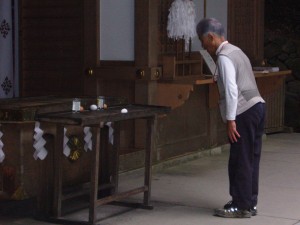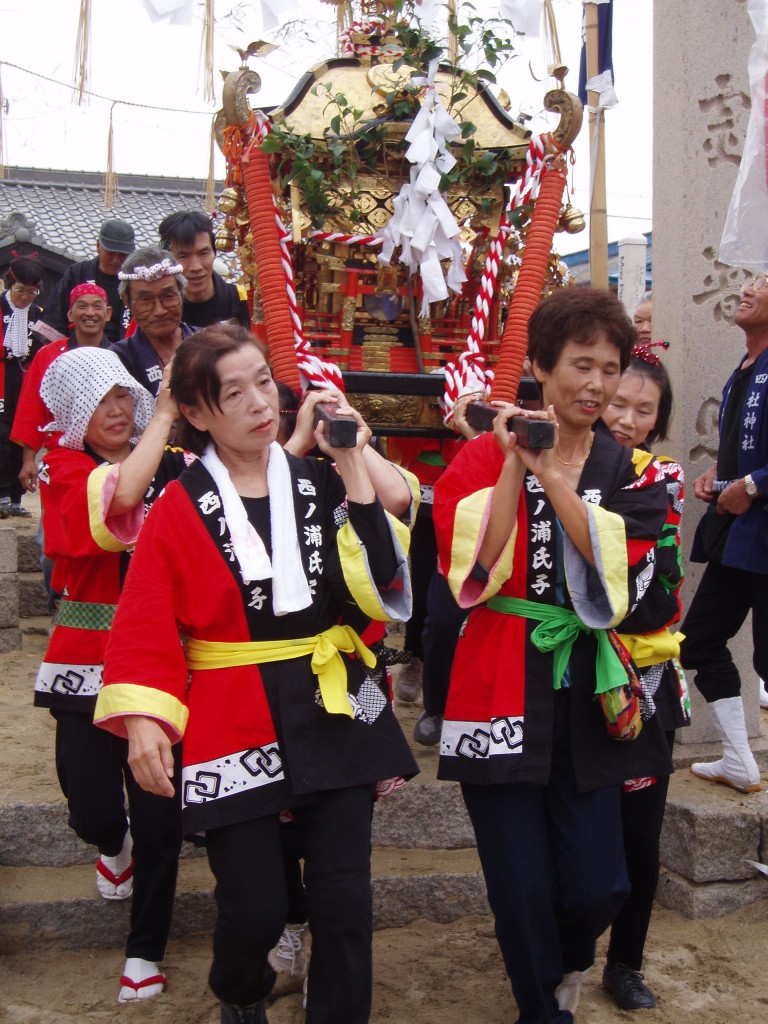Is Shinto a religion? it’s an intriguing question that cuts across the arbitrary categorisatiions of East and West.

A sign of belief, or just showing respect?
It is often claimed that Shinto is not so much a religion as a part of Japanese life. For example, you will see Japanese visiting shrines, praying, and buying amulets or having their fortune told. But if you ask them whether they ‘believe’ in Shinto, they would probably answer no. Similarly people may have their car purified, or they may ask the kami for good luck before taking examinations. But again if asked whether they are religious, they will say, ‘Who me? No. This is just a custom, just, well, the normal thing to do’. It’s like celebrating Christmas in the West. It doesn’t mean you are a Christian necessarily.
The reason Japanese are unlikely to see their behaviour as religious is because they have been taught the Western view of religion as an organisation which one joins and which has beliefs to which one ascribes. Shinto is not like that. It is not something to which one converts, for it makes no requirements. Nor is there regular worship which one should attend. Like yoga, it is open to all people and can even be practised without faith. ‘Although the typical Japanese boasts of not being religious and even of being atheist, as I do myself, Shinto is ever present in the Japanese mind,’ says Kubo Kenichi, head priest of Mizuya Shrine.
For much of its history Shinto did not develop its own theology or morality, because it borrowed them from Buddhism. Because Shinto was this-worldly and Buddhism other-worldly, the two seemed to go well together. Still today the great majority of Japanese are Buddhist yet follow Shinto practices: ‘Born Shinto, die Buddhist’ remains the norm. ‘Shinto accepts this world, it does not want to change it. The contention that Shinto is not a religion is related to this fact,’ wrote Joseph J. Spae in Shinto Man (1972).
Others however point to the transcendent aspect of Shinto as being essentially religious. One prays to, and worships, divine beings. Moreover, Shinto structures Japanese society in much the same way that Christianity structures the societies of the West. Since 1868 it has functioned as a separate and independent tradition, and there is growing interest in it as a world religion. Significantly, it has been estimated that around 5% of those visiting shrines ‘believe’ in Shinto in a Western sense of making a commitment of faith. Here surely is proof that it can be more than just a custom or practice.
(The above was written in conjunction with Timothy Takemoto of the Shinto Online Association. See http://nihonbunka.com/. The question of whether Shinto is a religion is also addressed here.)

Participation's the thing; belief is unnecessary

Leave a Reply